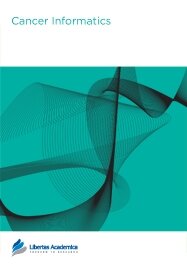

Publication Date: 03 Oct 2011
Type: Original Research
Journal: Cancer Informatics
Citation: Cancer Informatics 2011:10 233-247
doi: 10.4137/CIN.S8104

Following initial standard chemotherapy (platinum/taxol), more than 75% of those patients with advanced stage epithelial ovarian cancer (EOC) experience a recurrence. There are currently no accurate prognostic tests that, at the time of the diagnosis/surgery, can identify those patients with advanced stage EOC who will respond to chemotherapy. Using a novel mathematical theory, we have developed three prognostic biomarker models (complex mathematical functions) that—based on a global gene expression analysis of tumor tissue collected during surgery and prior to the commencement of chemotherapy—can identify with a high accuracy those patients with advanced stage EOC who will respond to the standard chemotherapy [long-term survivors (>7 yrs)] and those who will not do so [short-term survivors (<3 yrs)]. Our three prognostic biomarker models were developed with 34 subjects and validated with 20 unknown (new and different) subjects. Both the overall biomarker model sensitivity and specificity ranged from 95.83% to 100.00%. The 12 most significant genes identified, which are also the input variables to the three mathematical functions, constitute three distinct gene networks with the following functions: 1) production of cytoskeletal components, 2) cell proliferation, and 3) cell energy production. The first gene network is directly associated with the mechanism of action of anti-tubulin chemotherapeutic agents, such as taxanes and epothilones. This could have a significant impact in the discovery of new, more effective pharmacological treatments that may significantly extend the survival of patients with advanced stage EOC.
PDF (716.24 KB PDF FORMAT)
RIS citation (ENDNOTE, REFERENCE MANAGER, PROCITE, REFWORKS)
BibTex citation (BIBDESK, LATEX)
XML
PMC HTML


Compared with other journals we considered for publishing, Cancer Informatics provided extremely rapid but quality turnaround from draft submission to a flawlessly typeset final publication. Moreover, sharing the article is now as easy as sharing a link with no subscriptions required, and additional code and data files are equally accessible, supporting reproducible research. Because it has published many of our references we feel confident that our target readership must follow the journal. This is further ...

All authors are surveyed after their articles are published. Authors are asked to rate their experience in a variety of areas, and their responses help us to monitor our performance. Presented here are their responses in some key areas. No 'poor' or 'very poor' responses were received; these are represented in the 'other' category.See Our Results
Copyright © 2014 Libertas Academica Ltd (except open access articles and accompanying metadata and supplementary files.)
Facebook Google+ Twitter
Pinterest Tumblr YouTube